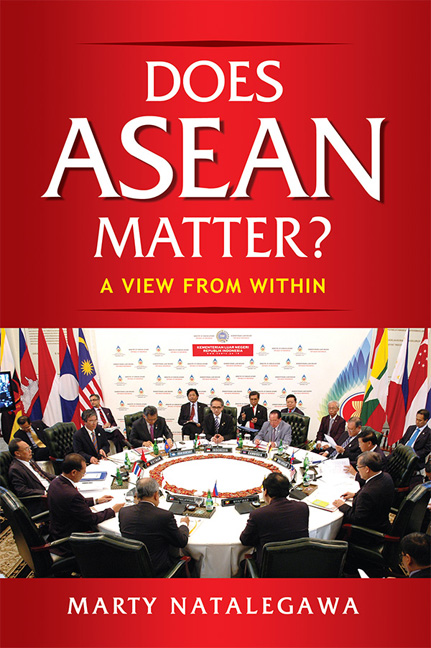Book contents
- Frontmatter
- Dedication
- Contents
- Introduction
- 1 Statecraft and Diplomacy in a World Transformed: 1967–2017
- 2 Southeast Asia: From Trust Deficit to Strategic Trust
- 3 ASEAN and the Region: From Cold War Pawn to ASEAN Centrality
- 4 From State-centric to People-centred ASEAN
- 5 ASEAN: Wither or Prosper?
- Appendix 1 Guidelines for the Implementation of the DOC
- Appendix 2 Declaration of the East Asia Summit on the Principles for Mutually Beneficial Relations
- Appendix 3 Statement of Asean Foreign Ministers on Asean's Six-Point Principles on the South China Sea
- Index
- About the Author
- Plate section
3 - ASEAN and the Region: From Cold War Pawn to ASEAN Centrality
Published online by Cambridge University Press: 08 June 2019
- Frontmatter
- Dedication
- Contents
- Introduction
- 1 Statecraft and Diplomacy in a World Transformed: 1967–2017
- 2 Southeast Asia: From Trust Deficit to Strategic Trust
- 3 ASEAN and the Region: From Cold War Pawn to ASEAN Centrality
- 4 From State-centric to People-centred ASEAN
- 5 ASEAN: Wither or Prosper?
- Appendix 1 Guidelines for the Implementation of the DOC
- Appendix 2 Declaration of the East Asia Summit on the Principles for Mutually Beneficial Relations
- Appendix 3 Statement of Asean Foreign Ministers on Asean's Six-Point Principles on the South China Sea
- Index
- About the Author
- Plate section
Summary
The transformative impact of ASEAN to intra–Southeast Asia relations over the past fifty years has been matched by ASEAN's contribution to altering the dynamics of Southeast Asian countries’ relations with countries beyond the region. Concurrent with, a sine qua non perhaps, the changing dynamics in intra–Southeast Asia relations, relations between Southeast Asian countries and countries outside the region have also been fundamentally transformed.
If the period prior to ASEAN was marked by a Southeast Asia sharply divided along Cold War lines — of individual Southeast Asian countries essentially succumbing to East–West rivalries — then fifty years of ASEAN saw those very same countries playing a central role in framing the region's affairs. Indeed, five decades of ASEAN have seen the setting of norms and principles on the nature of major powers’ engagement in the region; of an ASEAN being in the “driving seat” in shaping the region's political, diplomatic and economic architecture. The terms ASEAN centrality and ASEAN in the driving seat have become deeply ingrained in the region's lexicon. As a matter of fact, over different periods during the past fifty years, ASEAN-led forums and processes have often provided the only venues for certain competing non-ASEAN powers to gather. This has certainly been the case as far as China, Japan and the Republic of Korea are concerned (in the ASEAN context, the so-called “Plus Three” countries).
Such a transformation did not occur overnight. And, as far as Indonesia is concerned, did not occur fortuitously. Instead, it has been the culmination of a continued and deliberate process — it has been policy outcomes.
As argued above, prior to ASEAN 10, the countries of Southeast Asia were divided as much due to their varied political systems and histories as their diverse foreign policy orientations. These ranged from countries actively aligned with the “West” or the “East” to those pursuing a stance of active “nonalignment” — indeed, essentially, of isolation. In fact it was precisely such a diverse array of foreign policy orientations that made Southeast Asia such fertile ground for East–West proxy conflict for much of the Cold War.
- Type
- Chapter
- Information
- Does ASEAN Matter?A View from Within, pp. 70 - 163Publisher: ISEAS–Yusof Ishak InstitutePrint publication year: 2018



